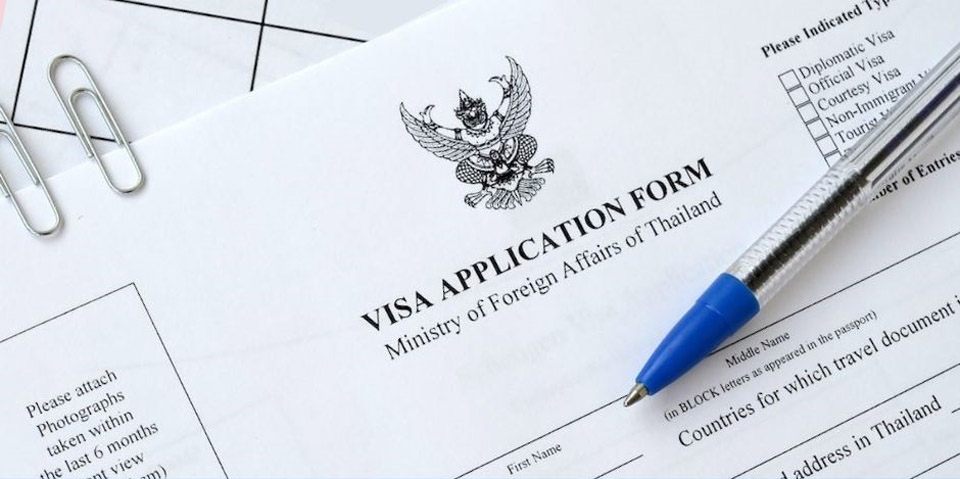The Thailand Long-term Resident Visa is not a conventional visa product—it is a multi-faceted residency instrument, designed to align foreign migration with national economic objectives. Officially introduced in 2022 under a Cabinet resolution and executed through inter-agency collaboration between the Thailand Board of Investment (BOI) and the Immigration Bureau, the LTR Visa offers 10 years of lawful residence alongside an integrated package of employment rights, tax incentives, and investment access.
This article offers a legally precise, policy-aware analysis of the LTR Visa: who it serves, how it operates, and what privileges it confers—not just as an immigration document, but as a strategic tool for residence, employment, and asset deployment in Thailand.
II. Legal Basis and Institutional Authority
A. Statutory Framework
The LTR Visa operates within the general scope of the Immigration Act B.E. 2522 (1979) but is implemented by Cabinet resolution and subordinate BOI and Immigration Bureau regulations. As such, it functions through a hybrid regime of executive and administrative rulemaking.
B. Implementing Bodies
-
Thailand Board of Investment (BOI): Screens applicants, issues digital work permits, confirms employment and investment eligibility.
-
Immigration Bureau: Formally endorses visa status, handles entry/exit tracking and annual reporting.
-
One Stop Service Center for Visa and Work Permit (OSSVC): Acts as a consolidated regulatory portal for processing, extensions, and dependents.
III. Visa Structure and Duration
-
Initial Validity: 5 years.
-
Renewable: Once, for a total of 10 years of legal residence.
-
Entry Type: Multiple-entry; no need for separate re-entry permits.
-
Address Reporting: Once annually (replaces the 90-day reporting requirement under most Thai visa categories).
Practical Outcome
The visa is legally distinct from Non-Immigrant categories (B, O, O-A) in that it requires no annual renewals or local sponsorship and significantly reduces interaction with immigration authorities over a decade.
IV. Targeted Eligibility Categories
Applicants must fall within one of four categories. Each is linked to a policy function: capital investment, demographic support, technological advancement, or exportable labor.
1. Wealthy Global Citizens
-
Net assets: ≥ USD 1 million.
-
Annual income: ≥ USD 80,000 (past 2 years).
-
Investment in Thailand: ≥ USD 500,000 in government bonds, equity, or property.
Objective: Encourage long-term foreign investment in Thai capital and housing markets.
2. Wealthy Pensioners
-
Age: 50+.
-
Income: ≥ USD 80,000/year or USD 40,000/year with USD 250,000 investment in Thai assets.
Objective: Support demographic and fiscal stability through passive-income retirees with low public service demand.
3. Work-from-Thailand Professionals
-
Employer: Foreign company with revenue ≥ USD 150 million/year.
-
Income: ≥ USD 80,000/year.
-
Work mode: Remote only; no local employer or labor competition.
Objective: Monetize remote work migration while preserving domestic employment equilibrium.
4. Highly Skilled Professionals
-
Income: ≥ USD 80,000/year or ≥ USD 40,000 with postgraduate credentials.
-
Experience: ≥ 5 years in a relevant field.
-
Employer: Thai or international BOI-endorsed firm in a priority industry.
Objective: Inject high-value human capital into sectors designated under the Thailand 4.0 national transformation agenda.
V. Work Authorization via Digital Work Permit
Applicants under categories 3 and 4 are eligible for a BOI-issued digital work permit, which provides the following legal distinctions:
-
Quotas: Not subject to the 4:1 Thai-to-foreigner ratio.
-
Employer Registration: BOI firms or endorsed employers only.
-
Permit Format: Fully electronic—no physical “blue book.”
-
Duration: Tied to the 5-year visa term; renewable with visa extension.
Legal Significance: The digital permit system bypasses the Ministry of Labour, creating a streamlined and legally autonomous employment path.
VI. Taxation Privileges and Structures
1. 17% Flat Personal Income Tax (PIT)
-
Applies only to Highly Skilled Professionals employed through BOI-endorsed firms.
-
Covers Thai-sourced income only.
-
Does not apply to investment or foreign-earned income.
Statutory Context: This deviates from the standard progressive PIT scale (5%–35%) under the Revenue Code and is codified through BOI tax rulings.
2. Foreign Income Exemption
Thailand applies a territorial taxation regime. Under this framework:
-
Foreign-sourced income is not taxable if:
-
Earned abroad, and
-
Not remitted into Thailand during the same calendar year.
-
This creates a legal deferment mechanism for foreign income—particularly relevant for retirees and remote workers with global revenue streams.
3. Tax Filing Obligations
-
Tax Residency Threshold: 183 days’ presence in Thailand within a calendar year.
-
Filing Requirement: Annual personal income tax return required if resident, regardless of liability.
VII. Investment and Property Privileges
LTR Visa holders are permitted to:
-
Own condominiums (within the 49% foreign ownership quota).
-
Lease land and residential property for 30 years (renewable).
-
Invest in:
-
Thai government bonds.
-
Public or private equity.
-
BOI-certified business entities.
-
Restrictions
-
No land ownership rights (per the Land Code).
-
No exemption from corporate ownership ratio rules (e.g., 51% Thai shareholding minimum for land-holding companies).
VIII. Dependent and Family Benefits
LTR Visa holders may include up to four dependents:
-
Spouse (legally married).
-
Children under 20 years of age.
Benefits
-
Same visa validity (10 years).
-
Children may access public or private education.
-
Spouse may apply for a digital work permit if qualified under BOI categories.
Legal Implication: Unified visa status removes the need for fragmented O or ED visa applications for dependents.
IX. Travel and Immigration Privileges
-
Fast-track immigration at international airports.
-
Elite Personal Assistant (EPA) service access on request.
-
No re-entry permit required, even after extended travel.
-
Centralized document processing via OSSVC.
X. Compliance Requirements and Grounds for Termination
Mandatory Conditions
-
Maintain health insurance with minimum USD 50,000 coverage.
-
Submit annual address report to Immigration Bureau.
-
Comply with tax filing obligations if residency threshold met.
-
At 5-year mark, re-validate original eligibility criteria (income, job, investment).
Revocation Criteria
-
Loss of qualifying status (e.g., divestment or job termination).
-
Criminal conviction in Thailand or elsewhere.
-
Submission of fraudulent documentation.
-
Breach of Thai public order or national security provisions.
XI. Use Case Scenarios
Case A: U.S. Software Engineer (Remote Professional)
-
Employed by a Silicon Valley firm; earns USD 160,000/year.
-
Resides in Thailand under LTR category 3.
-
Pays no Thai income tax on foreign salary not remitted within the tax year.
-
No visa runs or work permit applications required.
Case B: Swiss Retiree with Thai Investment
-
Age 66, receives USD 55,000 in annual pension.
-
Holds a USD 300,000 leasehold condo in Phuket.
-
Qualifies under LTR category 2.
-
Resides legally without annual renewal or health insurance compliance complexities faced by O-A retirees.
Case C: German Engineer in Robotics
-
Employed by BOI-endorsed Thai tech company.
-
Receives USD 90,000/year.
-
Pays flat 17% PIT, receives digital work permit.
-
Relocates with spouse and child, all under the LTR structure.
XII. Conclusion
The LTR Visa Thailand is not merely a visa but a legal residence regime integrating immigration, employment, tax, and investment access. For eligible individuals, it offers unmatched administrative simplicity and legal continuity. For Thailand, it creates a channel to import capital, stabilize demographics, and embed innovation into its development model.
Rather than modifying existing systems, the LTR introduces an entirely new structure, aimed at global citizens who are economically self-sustaining, professionally valuable, or demographically stabilizing. It is one of the most comprehensive long-term immigration frameworks in the region.


